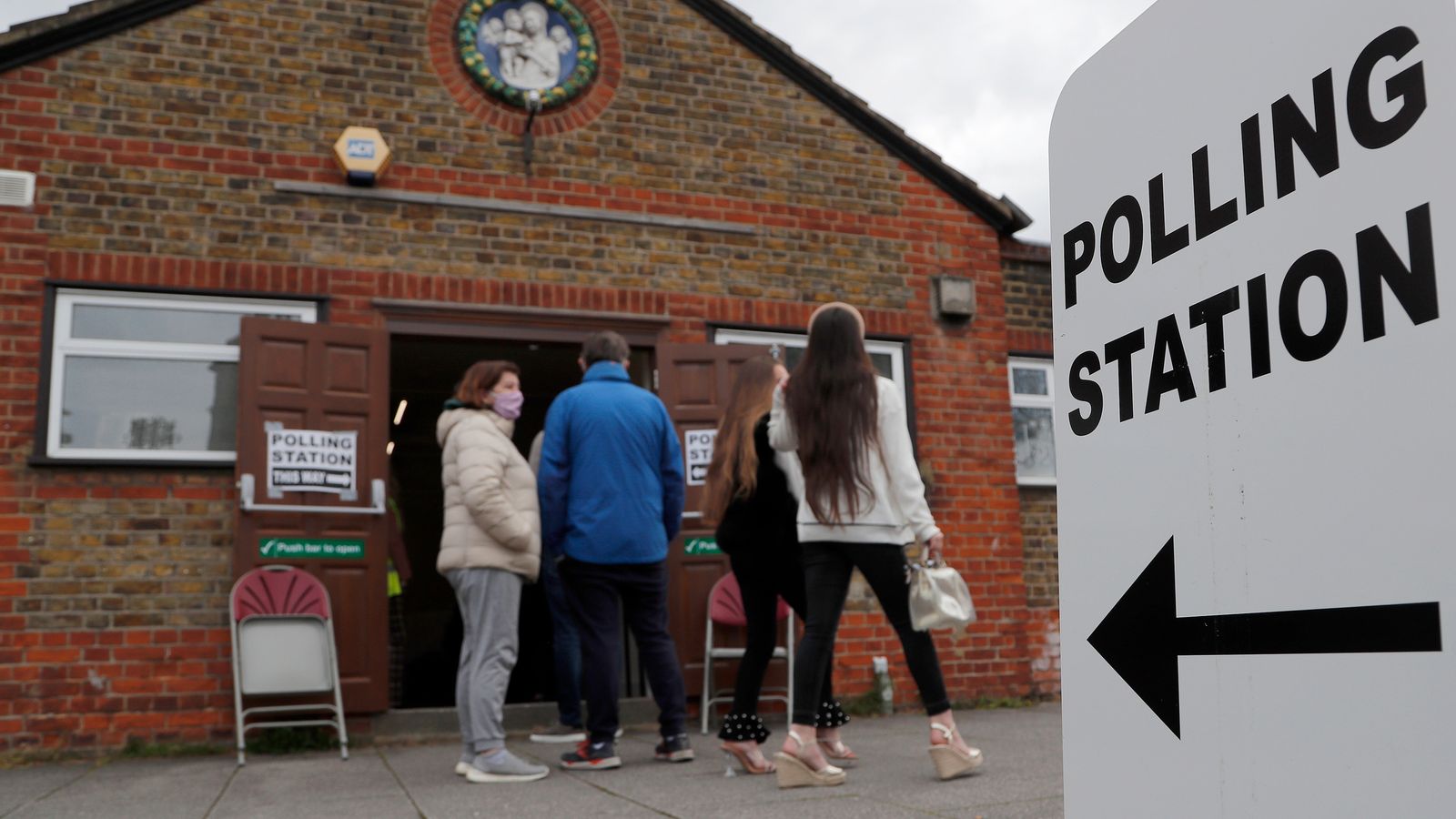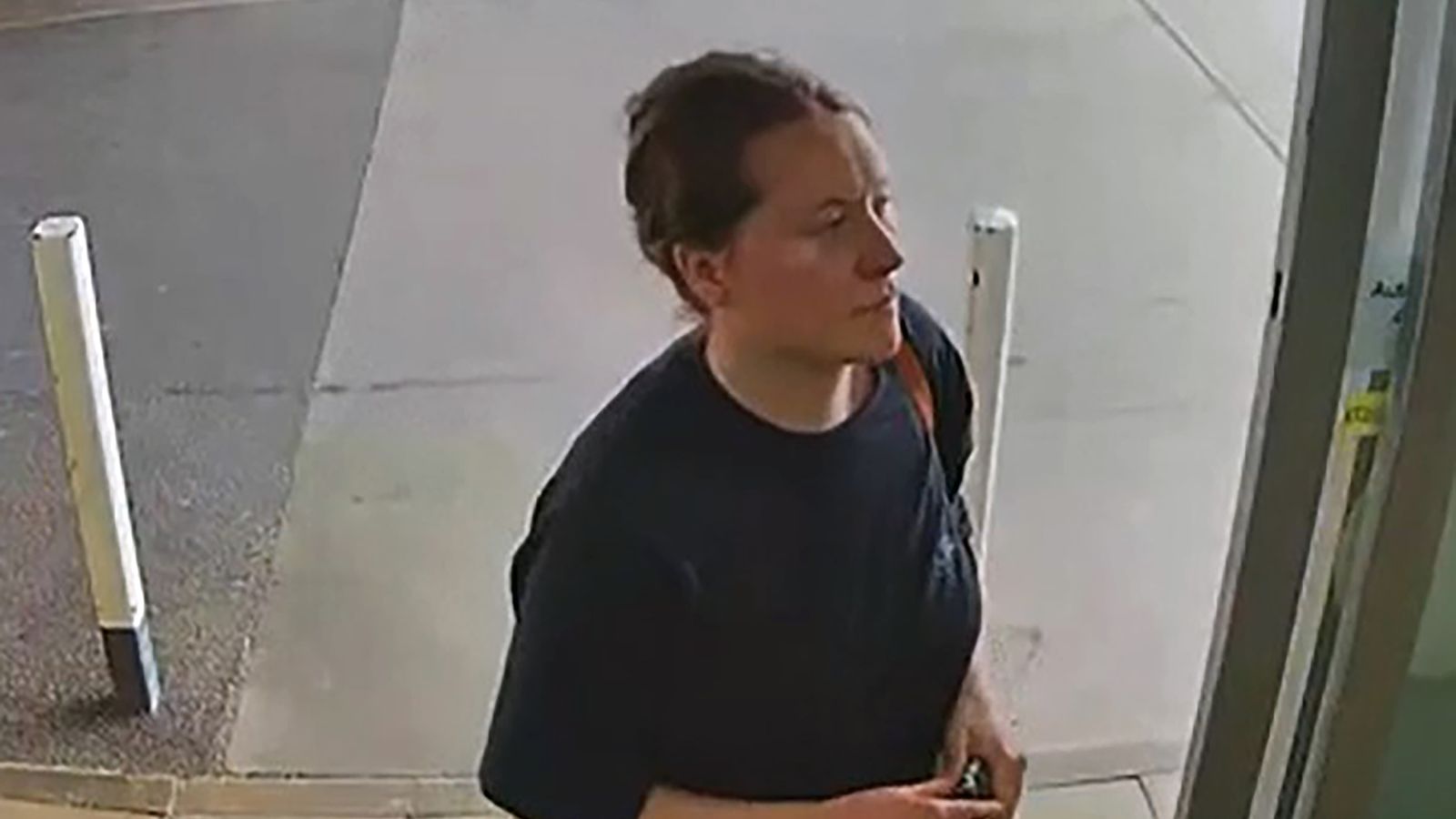A government minister was unable to say whether the number of voters turned away from polling stations at local elections because of a lack of ID will be properly recorded.
Rachel Maclean, a junior levelling up minister, faced criticism from MPs after failing to answer basic questions on how the controversial new system would work.
The May local elections will be the first-time voters in Great Britain will be required to show identification to take part.
Politics live:
Foreign secretary reacts to Germany row
Labour MP Clive Betts, chair of the levelling up committee, asked for clarity on how the number of people turned away because they don’t have ID will be recorded.
He said while clerks inside polling stations will take a formal register of those who cannot vote because they lack the correct ID, some venues will place so-called “greeters” outside to remind people of the rules in advance.
“Now, at that point what we don’t know is whether people turned away then will have their numbers recorded, and that’s the confusion,” he said.
Voter ID: ‘Threat to democracy’ or sensible fraud prevention?
How to apply for voter ID and what documents you can use to vote in local elections
Local elections 2023: David Davis calls for delay to new voter photo ID rules to prevent ‘hundreds of thousands’ being blocked from casting ballots
The Sheffield South East MP asked the minister if it is “the government’s intention” that information will be collected so the total numbers who attend a polling station and are denied a vote because they haven’t got ID will be counted.
Ms Maclean was not able to answer directly and said she would write to Mr Betts as he is “requesting a considerable amount of detail”.
Several MPs criticised her response, with Labour’s Kevin Brennan saying it was “utterly unacceptable” for the minister to not answer.
Several opposition MPs pressed her on the issue, raising concerns about the policy and the need to assess its impact.
Click to subscribe to the Sky News Daily wherever you get your podcasts
But Ms Maclean hit back accusing them of “making some kind of shrill and hyperbolic claims about this misguided idea that this is somehow voter suppression”.
Mr Betts later raised a point of order to tell MPs that he had just received a letter from John Pullinger, chairman of the Electoral Commission.
He said the letter informed him that greeters would not count the numbers of those they turned away, meaning that two sets of data would be collected – from polling stations with a greeter system and those without.
Read more:
Senior Tory calls for delay to new voter photo ID rules
What to expect at the local elections and how to judge who’s won
He said: “How can that be a sensible and co-ordinated information collection to show what the impact of this measure actually is?”
Ms Maclean then said “greeters would not be collecting the data” because it risks data being recorded in an inconsistent way.
She insisted there would be “a full evaluation of the policy, of which formal data collection in the polling station is only one part”.
Acceptable forms of photographic identification include a passport, driving licence, and blue badges. Free voter ID is also available.
The government has estimated that around 4% of the population of Britain are unlikely to have a valid form of photo ID to vote – the equivalent of just over two million people







